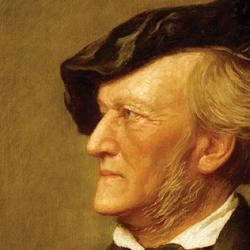Whatever else the 2016 Presidential cycle has accomplished, it has brought the chasm between nationalism and globalism into sharp relief. Many see this divide as the issue of the campaign (Robert Merry) or of the century (Pat Buchanan). It seems to be a choice we have to make.
Christians must refuse the choice. We are members of a communion that, now more than ever before, is geographically universal. The church is ecumenical, a worldwide “Abrahamic empire” (see my Between Babel and Beast). We are members of a real global community, which is not a Davos elite or a subversive Anonymous but a community that includes all sorts and conditions of men and (today especially) women. Our deepest brotherhood isn’t with other citizens of our nation but with those who are united with us by the Spirit in the Son. Baptismal water is thicker than blood; the Word unites us more basically than commitment to any Constitution, no matter how wise its political institutions. We cannot be nationalists.
On the other hand: The church is a body with many members, each individual member contributing in a unique way to the edification of the whole. The church is a nation of priests that encompasses all nations, tribes, tongues. Nations retain their national identities – their languages, histories, and customs – when they are disciples by the gospel; their national identities are fulfilled in service to Christ the King. We cannot be globalists.
Put it positively: Our internationalist and nationalist instincts infuse and qualify one another. Christian “globalism” acknowledges the goodness of peoples, the beauty in the difference of human experience and culture. The church is polyphonic. We live within political communities and, as Augustine said, we are specially obligated to love our nearest-neighbors. Christian “globalism” will thus exhibit “nationalist” features. Yet Christian “nationalism” is always qualified by our more fundamental attachment to the trans-national church. Christian patriotism will appear suspiciously thin to a true-blue nationalist.
At Pentecost, the apostles didn’t speak Esperanto. They preached the gospel in existing tongues. Ever since, the church has a Pentecostal community, preaching one gospel in many languages, expressing the one Way in many ways.
We refuse pure nationalism and pure globalism in principle. And we specifically must reject the forms that nationalism and globalism have taken in the modern world. There was a time when European internationalism was a Christian internationalism, when political leaders acknowledged they were servants of a universal King. Fealty to the king was fealty to one who saw himself as a vassal of Christ. That is no longer the case. Catholicity has been corroded by national loyalties. The church has too often been an agent of nationalism; we have ignored or attacked brothers and sisters in the name of national interest. For the past few centuries, nationalism has been a religious stance, the nation a sacred reality demanding our ultimate sacrifice.
Globalism is equally religious. As RJ Rushdoony argued many years ago, global institutions like the UN are animated by a humanist gospel of salvation by law and human genius, salvation without a Savior, the brotherhood of man without union with God the Brother.
We can put it this way: If membership in a people is a form of gift, then patriotism is a form of gratitude. Yet for Christians gratitude is never solely to the created giver or the created gift. Our gratitude for the gifts of citizenship is qualified by our gratitude to our Father, the Giver of all good and perfect gifts. We never owe our ultimate debt of gratitude to any but Him.
This stance doesn’t translate easily into any policy prescriptions, but the very un-ease of this outlook might play an important political role. Our love for the nearest-neighbor can inoculate us against evangelists of globalism, while our catholicity enables us to resist the lure of America firsters. Our nationalist-globalist mix should inhibit the militarism that has inspired America’s misadventures in war. We serve our fellow citizens who suffer the dislocations that result from a global economy, but we see immigrant communities as fields of mission and service, and often a vibrant source of edification, that the Lord has kindly brought to our doorstep.
What Brandon McGinley wrote recently about Catholicism should apply to the Christian churches more generally: “When we hear a black man describe police violence; when we hear an undocumented immigrant describe exploitative labor; when we hear a prisoner describe institutionalized brutalization; when we hear a young gay woman describe homelessness – our first response must not be to attempt to discredit, to rationalize, to explain away. Rather, we must give them the credit we would expect others to give to us, and try to understand experiences that differ substantially from our own. . . . This doesn’t mean credulously accepting every narrative or policy proposal that is accompanied by a claim of oppression; we still have to apply our rational faculties. It does mean treating every story with the solicitude we would reflexively grant to members of our own economic, social, racial, and religious tribes.”
We must learn to master the patriotic-global two-step, at the risk of being misunderstood, despised, and marginalized by both nationalists and globalists. Against globalism and nationalism, the Christian slogan must always be: Kingdom first.











